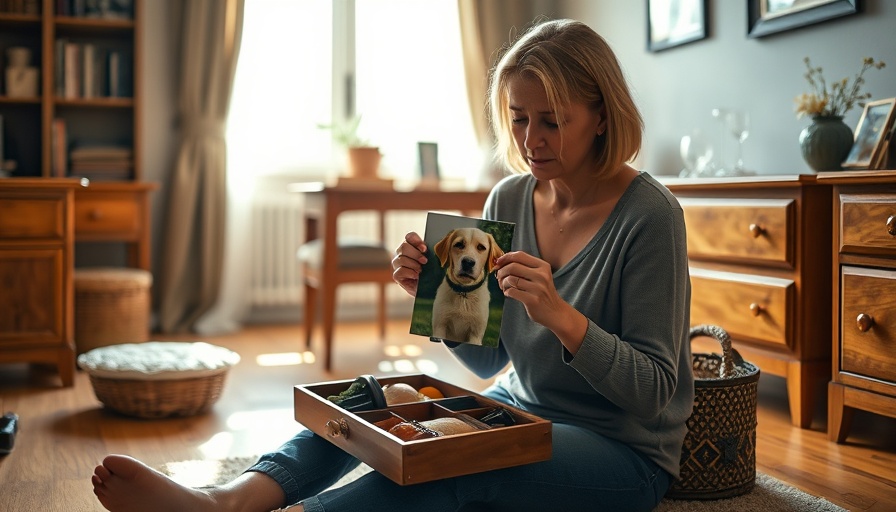
The Emotional Journey of Losing a Beloved Companion
Losing a dog can be one of the most heartbreaking experiences pet owners face. For many, these loyal companions transcend the role of mere pets; they become integral parts of the family. Their absence often leaves a profound void, stirring deep emotions of grief and sorrow, which require time and healthy coping mechanisms to navigate.
Understanding the Grieving Process
Grief is a natural response to loss, and it manifests in various ways. Allowing oneself to grieve fully is crucial. Whether it is sadness, anger, or guilt, experiencing these feelings without judgment is essential for healing. Everybody's grieving timeline is unique—what matters is acknowledging the pain and giving oneself permission to grieve.
The Beautiful Tradition of Sharing Stories
A great way to manage sorrow is by keeping the memory of your furry friend alive. Sharing anecdotes about your dog with others can provide solace. Whether it’s discussing their quirks or memorable adventures, talking about your dog can create a supportive environment filled with understanding friends who can empathize with your loss.
Creating Lasting Memories
Creating a memory box can act as a comforting tribute to your dog. By placing special items like their collar, favorite toy, or cherished photos in this box, you create a tangible reminder of the joyful moments spent together. Some find peace in writing a letter to their dog, expressing thoughts and emotions that perhaps were never shared.
Honoring Their Memory Through Action
Finding a meaningful way to memorialize your dog can be a powerful step in the healing journey. This could range from planting a tree in their memory to commissioning a piece of art or even creating personal memorabilia. Such acts help infuse love and attention into the healing process.
Helping Other Animals in Their Honor
Transforming grief into a positive action by supporting other animals can be incredibly fulfilling. Volunteering at shelters, fostering rescues, or even making donations are powerful avenues to channel your love and care towards animals in need. This not only honors the bond you had with your dog but can also bring joy during a difficult time.
Community Support: A Crucial Component of Healing
Engaging with a community of fellow pet lovers can also ease the pain of loss. Many local shelters or online platforms offer pet loss support groups where individuals can connect, share their stories, and show compassion towards one another. Recognizing that others share in your grief can be an invaluable part of the healing process.
Finding Resources and Professional Help
At times, the sadness can feel overwhelming. In such cases, seeking support from mental health professionals who understand pet loss can be beneficial. There are also numerous resources, including books and online articles dedicated to coping with the passing of pets. Having conversations about this loss can break down the stigmas attached and pave the way to healing.
Emotional Healing Takes Time
While grieving a dog is a deeply personal experience, it’s essential to remember that healing is a journey that cannot be rushed. Healing takes time, and it is perfectly normal to feel a mix of emotions long after the loss. Embrace this journey at your own pace, cherishing the memories and love that your special friend brought into your life.
Conclusion: Creating a Legacy of Love
Ultimately, the love shared with your dog should live on. Whether it’s through memories, actions, or the continued support of others, you can transform grief into a legacy that honors your pet. Each step in the healing journey helps build a more profound understanding of love, loss, and the space pets hold in our hearts. Remember, it’s okay to grieve; what matters is how you integrate those memories into your life moving forward.
 Add Row
Add Row  Add
Add 




Write A Comment